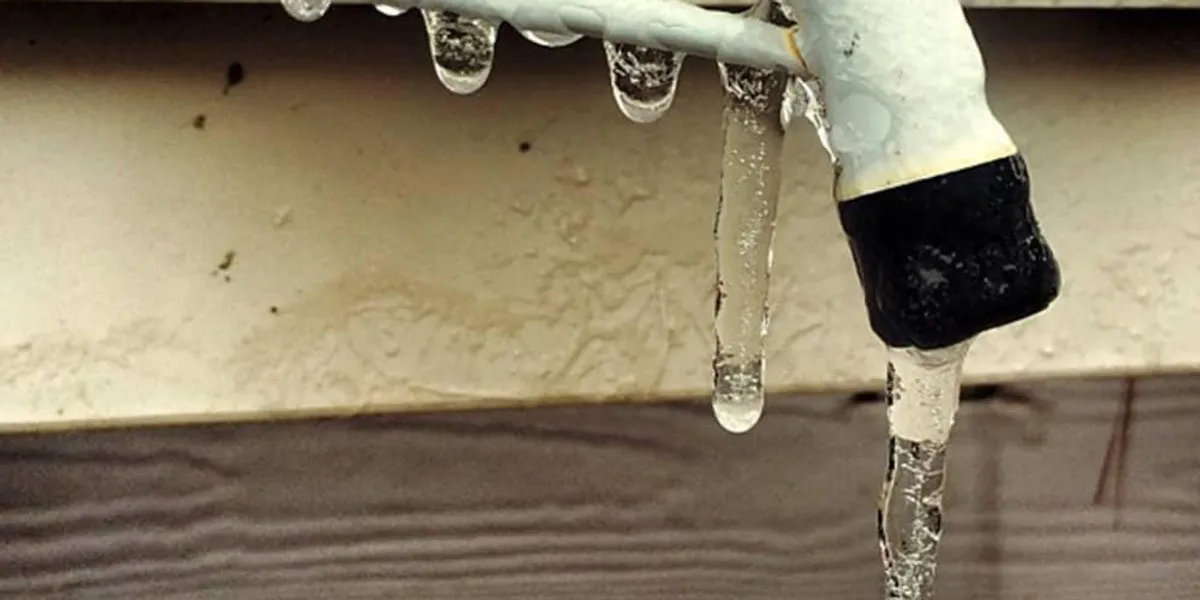The publisher is making a few great annotation on the subject of How to Prevent Your Pipes From Freezing as a whole in this post below.

Winter can damage your plumbing, especially by freezing pipes. Below's exactly how to avoid it from happening and what to do if it does.
Introduction
As temperatures decrease, the risk of icy pipelines increases, possibly resulting in expensive repairs and water damage. Recognizing exactly how to avoid frozen pipelines is important for homeowners in cold environments.
Understanding Frozen Pipes
What creates pipelines to freeze?
Pipelines freeze when revealed to temperature levels listed below 32 ° F (0 ° C) for prolonged durations. As water inside the pipes ices up, it expands, putting pressure on the pipeline walls and possibly triggering them to break.
Threats and problems
Icy pipelines can lead to supply of water interruptions, property damage, and pricey repair services. Ruptured pipelines can flood homes and create extensive architectural damages.
Signs of Frozen Pipes
Recognizing icy pipelines early can stop them from bursting.
Just how to determine frozen pipelines
Try to find reduced water circulation from faucets, uncommon odors or sounds from pipelines, and visible frost on revealed pipes.
Prevention Tips
Shielding vulnerable pipelines
Cover pipes in insulation sleeves or make use of warm tape to secure them from freezing temperatures. Focus on pipes in unheated or outside areas of the home.
Heating methods
Keep interior areas appropriately warmed, specifically locations with plumbing. Open closet doors to allow warm air to flow around pipelines under sinks.
Protecting Outdoor Plumbing
Yard tubes and outside taps
Detach and drain yard hoses prior to winter months. Set up frost-proof spigots or cover outdoor taps with protected caps.
What to Do If Your Pipes Freeze
Immediate actions to take
If you suspect icy pipes, maintain faucets open up to relieve stress as the ice melts. Utilize a hairdryer or towels taken in hot water to thaw pipelines slowly.
Long-Term Solutions
Architectural adjustments
Consider rerouting pipes away from outside wall surfaces or unheated locations. Include extra insulation to attic rooms, cellars, and crawl spaces.
Updating insulation
Invest in top notch insulation for pipelines, attic rooms, and wall surfaces. Proper insulation assists preserve constant temperature levels and lowers the threat of icy pipelines.
Verdict
Avoiding frozen pipes calls for aggressive actions and quick actions. By recognizing the reasons, indications, and safety nets, house owners can secure their pipes during winter.
Helpful Tips to Prevent Frozen Pipes this Winter
UNDERSTANDING THE BASICS: WHY PIPES FREEZE AND WHY IT’S A PROBLEM
Water freezing inside pipes is common during the winter months, but understanding why pipes freeze, and the potential problems it can cause is crucial in preventing such incidents. This section will delve into the basics of why pipes freeze and the associated problems that may arise.
THE SCIENCE BEHIND FROZEN PIPES
When water reaches freezing temperatures, it undergoes a physical transformation and solidifies into ice. This expansion of water as it freezes is the primary reason pipes can burst. As the water inside the pipe freezes, it expands, creating immense pressure on the walls. If the pressure becomes too great, the pipe can crack or rupture, leading to leaks and water damage.
FACTORS THAT CONTRIBUTE TO PIPE FREEZING
- Low Temperatures: Extremely cold weather, especially below freezing, increases the risk of pipes freezing.
- Uninsulated or Poorly Insulated Pipes: Pipes located in unheated areas, such as basements, crawl spaces, or attics, are more prone to freezing. Insufficient insulation or lack of insulation altogether exacerbates the problem.
- Exterior Wall Exposure: Pipes running along exterior walls are susceptible to freezing as they encounter colder temperatures outside.
- Lack of Heating or Temperature Regulation: Inadequate heating or inconsistent temperature control in your home can contribute to frozen pipes.
PROBLEMS CAUSED BY FROZEN PIPES
WHY CERTAIN PIPES ARE MORE PRONE TO FREEZING
- Pipe Bursting: As mentioned earlier, the expansion of water as it freezes can cause pipes to burst, resulting in significant water damage.
- Water Damage: When pipes burst, it can lead to flooding and water damage to your property, including walls, ceilings, flooring, and personal belongings.
- Structural Damage: Prolonged exposure to water from burst pipes can compromise the structural integrity of your home, leading to costly repairs.
- Mold and Mildew Growth: Excess moisture from water damage can create a favorable environment for mold and mildew growth, posing health risks to occupants.
- Disrupted Water Supply: Frozen pipes can also result in a complete or partial loss of water supply until the issue is resolved.
https://busybusy.com/blog/helpful-tips-to-prevent-frozen-pipes-this-winter/
- Location: Pipes located in unheated or poorly insulated areas, such as basements, crawl spaces, attics, or exterior walls, are at higher risk of freezing.
- Exterior Pipes: Outdoor pipes, such as those used for irrigation or exposed plumbing, are particularly vulnerable to freezing as they are directly exposed to the elements.
- Supply Lines: Pipes that carry water from the main water supply into your home, including the main water line, are critical to protect as freezing in these lines can affect your entire plumbing system.
- Underground Pipes: Pipes buried underground, such as those connected to sprinkler systems or outdoor faucets, can be susceptible to freezing if not properly insulated.

I discovered that article about Preventing and dealing with frozen pipes while surfing the search engines. Please set aside a second to share this article if you appreciated it. We appreciate your readership.
Click Here
Comments on “Tips to Protect Your Plumbing from Freezing: Key Strategies”